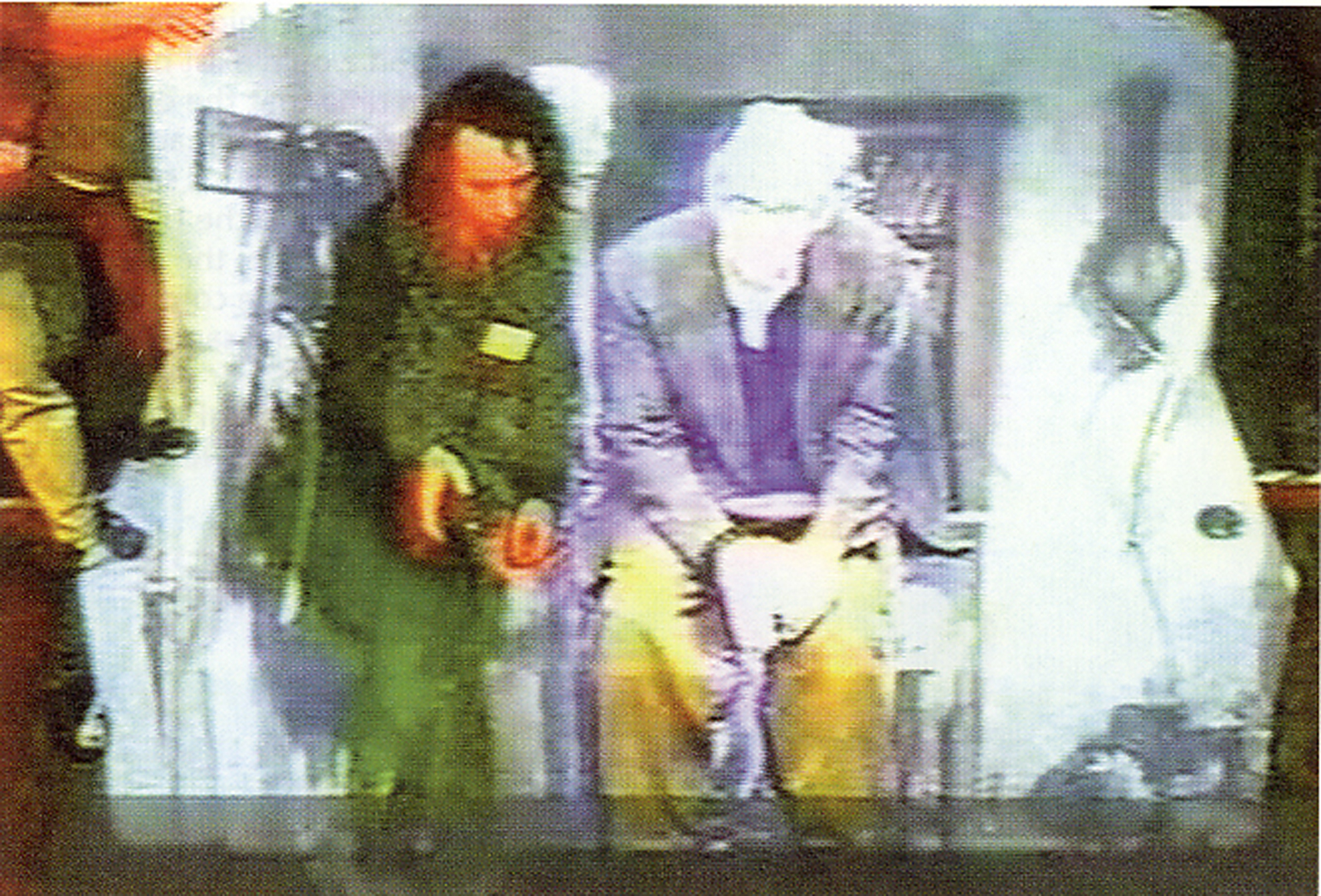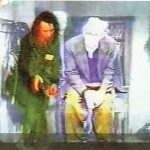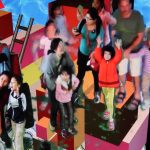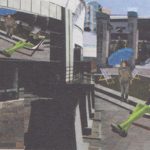Paul Sermon: Telematic Vision
Title:
- Telematic Vision
Artist(s) and People Involved:
Exhibiting Artist(s):
Symposium:
- ISEA94: Fifth International Symposium on Electronic Art
-
More artworks from ISEA94:


Artist Statement:
Personal Statement
The question of what existed before language is impossible to answer, as our consciousness resides entirely within a perception through language. Language is a technology, created to perceive a very different reality from the one without it – if, indeed, there was one at all. In the same way language is a technology, so too are video cameras, computer systems and telephone networks. But, whilst the technology of language is deeply embedded within our consciousness, and accepted as ‘naturally’ human, new technologies are still considered alien, and, in many ‘virtual cases’, very frightening. However, the fear is not with the technology in itself, but with the fear of forgetting what existed before it. We are in another period of transition from language to medi-age, it is impossible to speculate when and what will change, but when the question of what existed before ‘medi-age’ arises – if, indeed, there is such a question – the transformation will have happened.
Conceptual Statement
This project, between The ZKM-MultiMediale 3, Karlsruhe, and The Badisches Landes museum, Karlsruhe, is my third ISDN based telematic installation in succession. Preceded by ‘Telematic Dreaming’ in June 1992, and ‘The Telematic Séance’ in April 1993. The basic system of sending a live chroma-keyed video image, via an ISDN telephone line, from one site, to a chromakey system situated in another site, has remained consistent throughout each of these works.
In this new project, two users, one situated in The ZKM-MultiMediale 3, and the other in The Badisches Landes museum, will be sitting on sofas, watching themselves sat next to the user in the opposite location, on separate monitors. A simple system of video cameras and chromakey mixers will allow each user to move freely within their own physical environment, whilst having complete mental interaction in the telepresence environment. The system works like a mirror that reflects the viewer within another persons reality, creating a telematic out-of-body experience. The possible interaction is completely open ended, and entirely dependent on the users participation. A third visual interplay is made by a prerecorded videotape that runs concurrently behind the two users. The prerecorded video image acts as an additional dialogue, creating specific contexts for new possible modes of communication.
Summary Statement
During the realization of ‘Telematic Dreaming’, my first ISDN based project, produced in Finland, June 1992, I discovered the ability to exist outside of my own space and time. A live video projection of my body, on a bed 500 miles away, was psychologically alarming. The semiology of the bed evaporated the technology of teleconferencing, and the implications of being in bed with ‘me’ was all that remained. In this new work I have decided to use a tv-sofa zapping scenario as an interface to carry the semiology that will deem the underlying ISDN technology
invisible.








